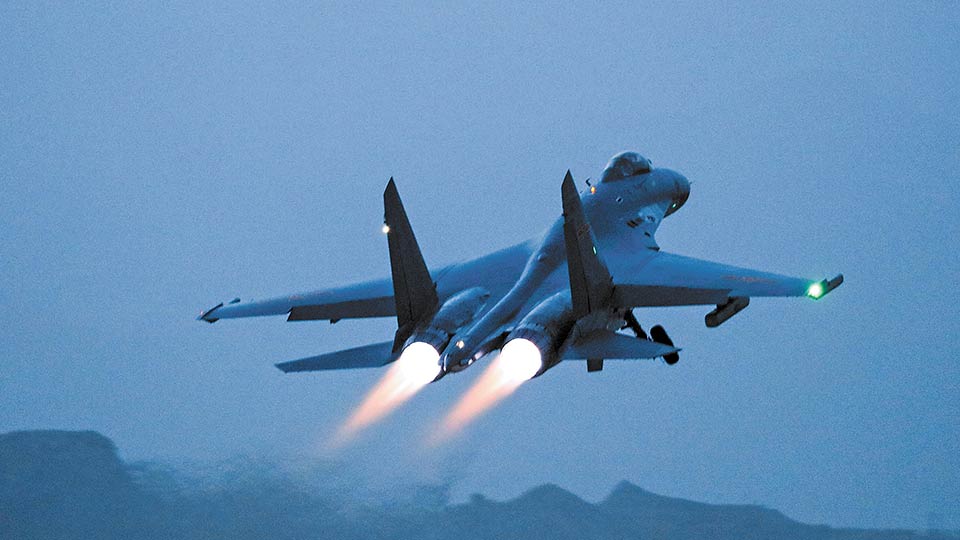By Guo Xiaobing
The US Vice President and chair of National Space Council Harris released the “Space Priorities Framework” on December 1. Called the US new space strategy by some media, the document is actually not much different from the one in Trump’s time – highlighting strategic rivalry, stressing other countries’ “space threat” to the US, and vowing to maintain America’s domination in the outer space. Washington’s stubborn stance on weaponizing outer space and turning it into a battlefield continues to threaten the peaceful utilization of space.
First, the US continues to strengthen its space force. The Biden administration has not only kept the space force initiated by Trump, but also further improved it by setting up the Space Systems Command responsible for the development and procurement of space offensive and defensive systems and the Space Training and Readiness Command responsible for tactics, regulation formulation and combat training. When the Chief of Space Operations of US Space Force testified at the congress, he said the space is a cornerstone of America’s deterrent force that concerns key infrastructure such as security, economy, and public health. The Space Force’s budgetary request for FY2022 is USD 17.4 billion, an increase of USD 2 billion from the previous fiscal year.
Second, the US continues its aggressive space operation policy. Commander of US Space Command James H. Dickinson said on August 24 that his Command has acquired primary combat capability and will obtain full combat capability in the next few years. According to the 2018 Nuclear Posture Review Report, America will use nuclear weapons to not only respond to nuclear attacks, but also major non-nuclear attacks in outer space and cyberspace. This will largely expand the scope and lower the threshold of using nuclear weapons and consequently increase the risks of nuclear conflicts. Besides, Harris’ predecessor Pence once talked about the possibility of deploying nuclear weapons in space when necessary, and the Biden administration has neither changed relevant policy nor clarified such remarks after taking office.
Third, the US clings to the Cold War mentality and is bent on forming a space alliance. The US-initiated Operation Olympic Defender (OOD) has attracted more than 30 participants so far. The NATO Summit this year reached a consensus on the NATO 2030 Agenda with space-related topics being the focus of its “collective defense”. The US has carried out a series of space combat exercises such as the Schriever Wargame, Global Sentinel and Space Flag, which emphasize coordination in the alliance and have drawn in more allies.
Fourth, the US insists on making dangerous space operations that endanger the security of other countries’ space assets. America’s Geosynchronous Space Situational Awareness Program (GSSAP) has conducted close-in reconnaissance on a dozen satellites since 2014. In July this year, its space surveillance satellite code-named “USA 271” approached China’s SJ-20 satellite. As satellites operate at a high speed in space, such close-in operations may easily lead to a collision and trigger a crisis.
Fifth, the US continues to block the conclusion of a space arms control treaty. Promoted by China and Russia, the UN General Assembly once passed a resolution to form an expert team to discuss the factors that should go into an international legal instrument on preventing an arms race in outer space. The US in March 2019 unilaterally vetoed the document agreed by all other parties for the purpose of political manipulation, and the incumbent US administration is still blocking the negotiations on a space arms control treaty on the pretext of concept, verification, and other technicalities. Meanwhile, to further muddy the picture, Washington strongly supports London in pushing the “responsible code of conduct for outer space” in the UN and roots for applying the law of war in space, as a way to lure the international community into accepting space weaponization as a fait accompli and giving up efforts to prevent that trend.
These moves on the US’ part have stimulated an arms race in space, as countries like France, Japan, Britain and Germany have all followed suit in setting up the space force or space command, adding to the risk of space conflict that may further escalate into a nuclear conflict. As the country with the strongest space capabilities and greatest reliance on space facilities, the US should live up to its special responsibilities, stop weaponizing the space and turning it into a battlefield, make a commitment with other countries that no one should fight a space war as no one will emerge from it as a winner, and pursue joint endeavors to utilize the space in a peaceful way.
(The author is director of the Center for Arms Control Studies, China Institutes of Contemporary International Relations)
Editor's note: This article is originally published on huanqiu.com, and is translated from Chinese into English and edited by the China Military Online. The information, ideas or opinions appearing in this article do not necessarily reflect the views of eng.chinamil.com.cn.

















